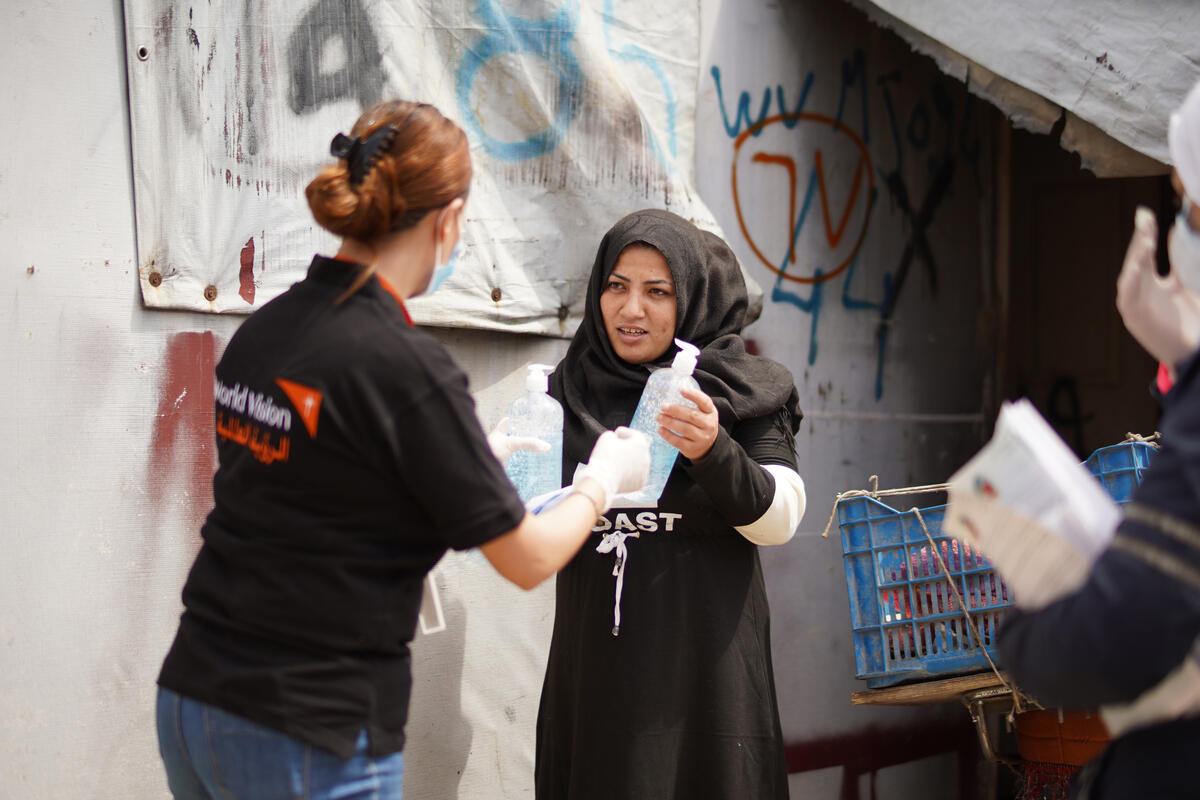
- COVID-19 cases have increased 20-fold in past three months
- Hospitals instructed to stop taking in COVID-19 patients
- Funding desperately needed to increase testing and strengthen health system capacity
- World leaders must prioritise protection of children from pandemic's aftershocks
Thousands are at huge risk as COVID -19 cases soar in Syria; a country already decimated by almost 10 years of war, aid agency World Vision has warned.
The warning came as the NGO launched a report that documents the first 100 days of its global response to COVID-19.
"The spectre of COVID-19 is yet another devastating blow for children and their families in Syria, who have been through much heartache already. The official figures could be the tip of the iceberg because testing is so scarce. For those living in camps, it can be impossible to socially distance or to access clean water." said Graham Strong, acting CEO of World Vision Australia.
Official figures show that cases have increased 20-fold in the past three months from 29 in May to 608 cases to date.
"We have already heard reports[1] that the increase in cases has overwhelmed the capacity of local hospitals, with the Ministry of Health instructing hospitals in Damascus and rural Syria to stop taking in COVID-19 patients." said Nadine Haddad, World Vision's Senior Advisor on Conflict and Fragility.
World Vision is extremely concerned about cases increasing in north-west Syria where thousands of people forced to flee their homes because of conflict are crammed into barely liveable conditions inside displacement camps. The figures there officially stand at 30, however, according to health experts on the ground [2] this could rapidly increase. Doctors and nurses are also reported to be infected with COVID-19.
"As we witness global cases rising to more than 16 million, we must be aware that in some of the world's most vulnerable places, the virus isn't even close to reaching its peak. In Syria, projected cases and deaths will be particularly severe among those who have fled conflict and are now living in camps. Much of the infrastructure has been destroyed and health services are skeletal. As cases increase, the already weak health system will soon be overwhelmed." Ms Haddad said.
World Vision's 100 Days On – Covid-19 Response report reflects how the international organisation adapted to remote response coordination, scaled up community, health-worker and faith-leader initiatives and rejigged displacement operations inside camps. By doing this, they have reached 44 million people, almost half of them children, with essential aid and secondary impact support.
"We are grateful that our donors have enabled our organisation to respond and support so many to fight the impact of COVID-19 in some of the world's most fragile places. World Vision and other aid agencies will continue to work with vulnerable children and their families as they battle the aftershocks of COVID-19 but we cannot do this alone." Graham Strong said.
The international NGO is calling on global leaders to facilitate unfettered humanitarian access and urgently provide funding to increase testing and strengthen health systems in places where many will otherwise be left to die.
"We continue to do everything we can to support the most vulnerable, and we urge world leaders to prioritise the protection of children from the aftershocks of this pandemic, giving them the chance to reach their potential." Mr Strong said.






